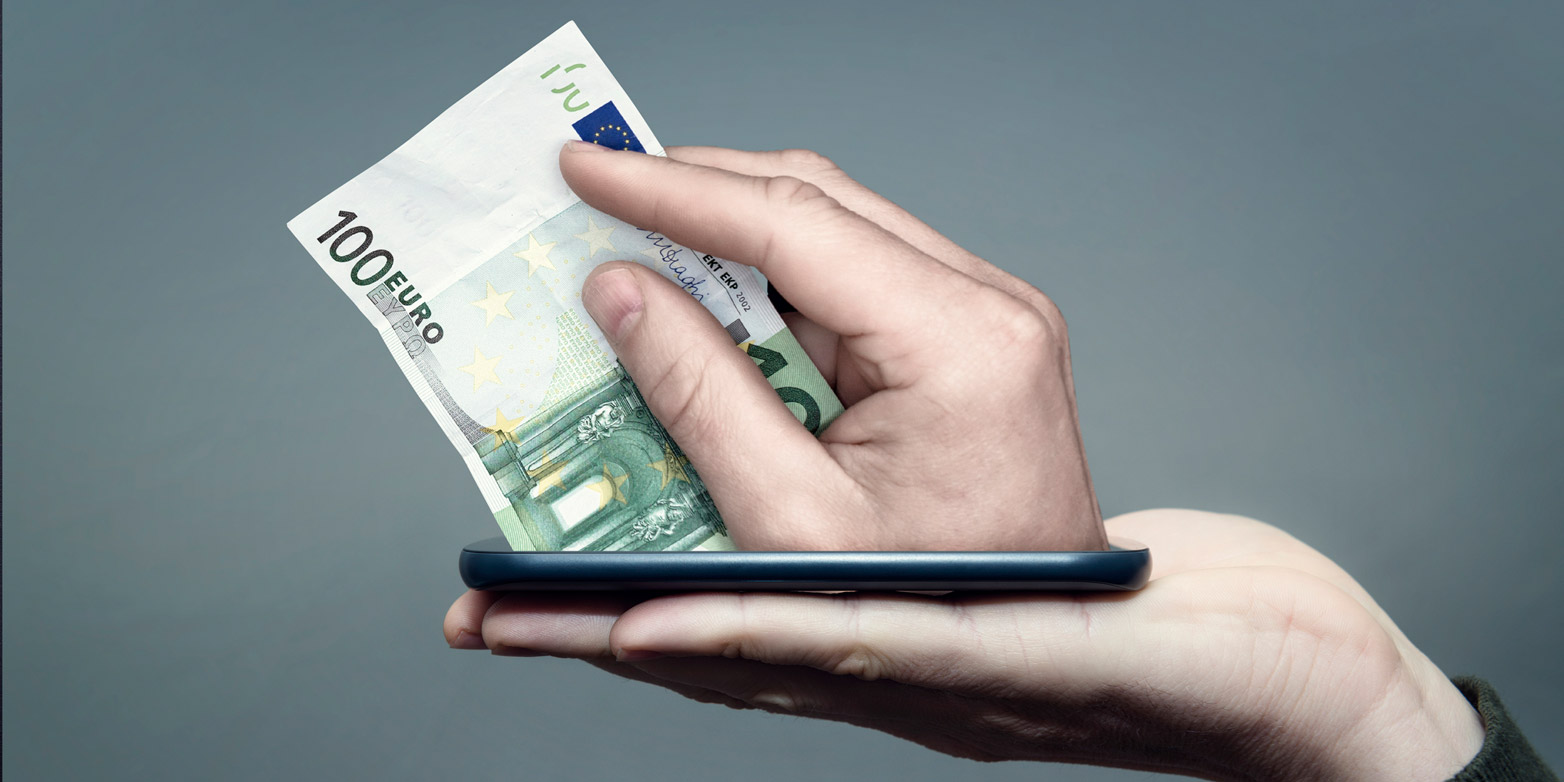Cash, card or crypto?
Now that the first Bitcoin battles have abated, Roger Wattenhofer thinks it a good moment to give serious thought to cryptocurrency – and how we’ll be paying in the future.

Nowadays there’s an array of payment means – notes and coins, plastic debit and credit cards, and new mobile apps such as Alipay or Twint. These apps work rather like plastic, both in function and concept, but here the card is integrated into the smartphone. Apps look set to oust plastic in the midterm, so that we’ll only resort to real cards when our smartphone battery is empty.
In most countries, plastic and apps are widely used and accepted. And whereas in Switzerland most people still pay with cash, in China they use apps almost exclusively. In fact, WeChat Pay already has more customers than Visa and Mastercard combined1.

Alongside these traditional forms, crypto has recently come into play, with Switzerland's largest online retailer Digitec Galaxus now accepting ten cryptocurrencies. And although their distribution is still tiny and economically insignificant, it’s worth looking carefully at cryptocurrency as an interesting payment option.
No provider needed
Cash payment has an undisputed advantage because the concept is simple and easy to understand. And more important, cash also works offline – without electricity, internet, or computer. In Sweden, which will soon be cashless, any sustained interruption of the electricity or network infrastructure would pose quite a problem!
Crypto and cash have more in common than you would think. Both work perfectly well without financial service providers: with crypto you simply generate your account totally autonomously – just configure and save the account number and account key and off you go.
“Cash is more expensive than you think.”Roger Wattenhofer
As crypto requires no financial service provider, the fees are negotiable, and thanks to approaches developed at ETH2, will be easily scalable in future. Your privacy is also protected – crypto currencies like Zcash are as anonymous as cash. What's more, with crypto and cash you don't have to worry that the financial services provider will go bust, because you own the money yourself. Which means it’s also easy to avoid paying taxes on transactions.
The cost of cash
Cash is more expensive than you think. Extrapolating from Bank of America's figures3, storing and transporting cash worldwide costs tens of billions. And we shouldn’t underestimate the production costs either; Switzerland has the world's most expensive banknotes, with a Swiss note costing roughly as much as three to six euro notes, depending on the denomination. If customers had to bear these costs, cash would certainly become less popular.
Payment apps and crypto, on the other hand, are cheap to produce and use. The high energy costs associated with the mining of first-generation cryptocurrencies can be completely avoided with alternative technologies such as Proof of Stake4.
Cash is also not without risk; money can be forged or stolen. As the use of cash in Sweden has declined, so too has the number of thefts – and the social costs these incur. But even with crypto, the key for your assets must be well protected, as thieves are becoming ever more digital, and no doubt better organised.
The future of payments
In the medium term, the high costs of cash will very likely be passed on to the customer, whereas I imagine you’ll always get some discount when paying by app. So no doubt there’ll be a downturn in the popularity of cash here in Switzerland. Countries like China and Sweden have shown that you can do without cash – just as long as there's electricity and an internet connection! But for emergencies, we need a form of money that is independent of infrastructure and specific financial service providers.
Cryptocurrency is an appealing alternative here, provided you can carry out transactions without the internet, in exceptional cases at least. And research into crypto will no doubt help improve plastic and app payment too. Looking ahead, I believe we’ll see mixed forms as well – for instance, people will own cryptocurrency that is also protected by financial service providers.
References
1 Wikipedia: external page WeChat
2 Distributed Computing Group, ETH Zurich: A Fast and Scalable Payment Network with Bitcoin Duplex Micropayment Channels
3 Spiegel (2016): external page Wenn das WC-Geld nur noch per App bezahlt wird
4 Wikipedia: external page Proof-of-Stake
Comments
No comments yet